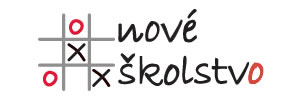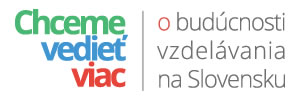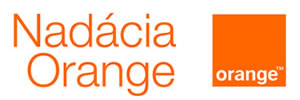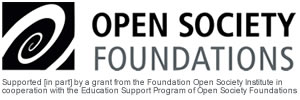Trends
Fewer children are being born, and people are living longer. The population is aging. Many people are single or live in informal partnerships. Almost half of children are being born out of wedlock. Fewer and fewer people will take root only in one place, and adhere only to one group. Values and lifestyles are changing. Society is more diverse; it faces the threat of the atomization and deepening economic disparities between various social groups.
Challenges
How will the ever longer lifetimes affect the relationships between different generations? How will we harmonize individual, family, community and societal interests, needs and priorities? How will education and other public services adapt to the changes in populations?
| Imagine a FUTURE in which the core value will be: | Imagine a FUTURE in which the core value will be: | Imagine a FUTURE in which the core value will be: |
| FREEDOM AND PERSONAL RESPONSIBILITY. | SOLIDARITY AND BELONGING TO THE GROUP. | EQUALITY AND COLLECTIVE WELL-BEING. |
| People primarily rely on themselves; individualism is a widely accepted value. | People form informal communities and contribute to their organization in an effort to be self-reliant. | People consider themselves to be part of the whole society, and are used to prioritizing the interests of the whole to their own when justified. |
| The success of an individual depends on their own skills, hard work, and ambition. Society is moving forward thanks to competition dominated by exceptional individuals. Society is held together by new visions about which the best among us managed to convince others. | People live in households that receive support from both the community and the state. Society is making progress thanks to competition between communities and is held together by the search for balance between different groups. | Society is moving forward thanks to the broad participation of people working together to reach planned objectives. Society is held together by the commitment of individuals to collective interests. |
| Successful individuals provide aid and support to family members across generations. Children come into the world when their parents are fully engaged work / economic activity and the education of children is in the hands of private providers, or extended family members that take over much of the responsibility. | The basic unit of society is a household, which may be identical to families or not. The household is the recipient of the core services of the state, but it received most of its resources from the community to which it belongs. | There is a wide range of public services that the government either provides directly or subsidizes the providers. Private initiatives work to supplement the generally available standard and their provision is regulated by the state. |
| In the field of education, the government only requires the completion of a minimal common core. There is an "endless" variety of educational paths to extend this common shared basis. " laissez-faire parenting" is encouraged and children are soon led to become independent and take over ever-increasing responsibilities from early age. After completing the common core, the educational path of a person is fully in their hands. | Compulsory education is shortened and is provided directly in communities, but usually only until the period of early adolescence. By contrast, a formal recognition of adulthood moved to a higher age because of the need to strengthen the network of relationships in which a person will function throughout life. There is a network of mentors and peer groups and a network of peer groups, which makes it possible to continue learning and working. | Quality and variable compulsory education is provided to adulthood, with its basis being education for active citizenship. Citizens are actively involved in democratic processes at local and national levels and they require their representatives to promote the long-term interests of society. Social and spatial mobility is encouraged. |
| Education beyond the common core is a matter of supply and demand and it is primarily offered by commercial entities in a variety of ways. Public institutions provide further education only to those who cannot afford anything else. Learning is first and foremost a lifetime investment and the individual responsibility of every citizen. Everyone decides about the extent of their education on an individual. | Many communities have created their own schools, where they educate according to their needs and wishes, beyond the minimum set by the state. Many schools specialize because education is first and foremost a service of the community to its members, and vice versa; it is a prerequisite for further development of the community. | School is an important institution of education and socialization from an early age to adulthood. Compulsory education has been extended to 18 years of age. The government also provides educational and requalification programs for adults within the framework of a lifelong learning program. The curriculum and educational standards are defined by the state, and the results are verified by standardized testing of pupils. |
OUR RESEARCH
Today, almost half of people consider themselves to be ambitious, trying to make an impact on others by their excellence and skills. A third of people think that it will be important to succeed and stand out above the rest in the future; however, half expect that people will have to learn to adapt more to changes in society.
More than half of the people in Slovakia (51%) consider it important to have strong ties to a narrow circle of friends and acquaintances. More than half (55%) believe that being surrounded by close ones who you can always turn to and rely on will still be an important value even in 25 years.
Almost everyone (up to 90%) considers education to be the path to success in the labor market and close to 60% believe that education should make it possible for a person to succeed when competing with others. Education should also lead children to better communicate with others, to create good relationships with them (70%) and allow for easier cooperation (73%).
OTHER RESEARCH
The age structure of the Slovakian population is characterized by two fundamental features of unequal distribution and aging. The unequal distribution is primarily caused by fluctuations in birth rates over the past 100 years, while aging is caused by a gradual decrease of birth rates and an increase in life expectancy.1
„The family is going to break up, family members will be flexibly coming and going. It will be strange.“ - a workshop participant in Šamorín
Forecasters predict that the number of households with only one person who lives and manages finances alone is going to rise in the future. By the year 2030, the share of such households in all types of Slovak households is to increase from the present value of 29.5% to 31.7%.2 Single-person households are formed, for example, after the death of a spouse, a divorce, and increasingly also by unmarried individuals, with a predominance of men under the age of 35 years.
„People will help each other more and the older will give more help to the younger. We will go back to cross-generational families. A family will be considered to be everything that provides a refuge“ - a workshop participant in the city of Žilina
The European Values Study shows that family has been the most important value for the citizens of Slovakia since Slovakia joined the survey in 1991. Its importance is recognized by close to 99% of the population. According to the study, friends and acquaintances are the third most important pillar of happiness in people’s lives, just after family and work. Their importance is valued in Slovakia by up to 85% of people.
The willingness of people to create social networks and associations and express solidarity with others has not changed significantly in the course of the past 20 years. People most often get organized in culture, music, and sports associations. They get to organize the least in public-benefit organizations or associations where the rates of membership have steadily declined. In 1991, 55% of the population of Slovakia was members of at least one such organization, while in 2009 it was only 26%.3
GOOD TO KNOW
British forecasters presented the shifts that will shape education over the next 10 years. The near future will bring about fundamental changes in the approach to curricula, educators, and students. Education will increasingly go beyond the boundaries of the school and learning will be increasingly less tied to the classroom and to the student/teacher relationship. Students’ motivation will become more significant because the gap will widen between those who want and have knowledge and those who do not want or fail to learn. There will be a shift from giving grades to providing continuous feedback, a shift from exerting pressure on performance, to giving support, expert assistance, and mentoring.4
„Cohesion of communities will be based on the sharing of some of the varied palettes of cultures and subcultures, each preferring their specific paths to spirituality, their models of earning a living, their family models and the like. Naturally, in between the communities there will also be specialized “small islands”, such as those for science and research, or special production. Nor will closed sectarian congregations be an exception. There may not be fewer psychopaths and sociopaths, but what is a more effective prevention than a transparent community with its norms?“ - Fedor Gál sociologist
„Podobu spoločnosti budú určovať ľudia, ktorí budú vpredu a ostatní ich budú len dobiehať.“ účastník workshopu Rožňava
A current phenomenon is the shared economy. It shows that people have, in fact, much more capital and opportunities for work than they think. It turns out that people own many things and can provide many services that they themselves don't use that someone else may be interested in. The Internet offers a space for supply and demand to meet in a wide variety of market segments. Benefits from the shared economy are of particular interest to the middle class, but low-income households also use it as a chance to make some extra money.5
„Today, graduates are entering a demanding world – the digital revolution has an increasing impact on our economy and we need to ensure that education provides the necessary skills from an early age. Education is not just about the job market. Education plays a key role in the creation of a cohesive and sustainable society and in preparing citizens for the unknown future. It serves to ensure that the cultural and civic values that we identify with will be passed on to future generations.“ Mārīte Seile Latvian Minister for education and
„The society will fall apart to extremes, some children will have everything in terms of material wealth and they will lack something else. And vice versa. “ a workshop participant in the town of Nováky
Footnotes
[1] Úrad verejného zdravotníctva SR (2015) Správa o zdravotnom stave obyvateľstva SR za roky 2012 – 2014. Dostupné vo formáte pdf.
[2] Prognostický ústav SAV, Infostat – Výskumné demografické centrum (2014) Prognóza vývoja rodín a domácností na Slovensku do roku 2030. Dostupné vo formáte pdf.
[3] Kusá, Z., Tížik, M. (eds.) (2009) Výskum európskych hodnôt 1991-1998-2008 slovenská a česká spoločnosť. Bratislava: Sociologický ústav SAV.
[4] Institute for the Future (2013) From Educational institutions to Learning Flows. Dostupné vo formáte pdf.
[5] Biel, M., Pavúk, J. (2014) Podeliť sa a zarobiť. In Trend, 16.01.2014. Dostupné vo formáte pdf.



